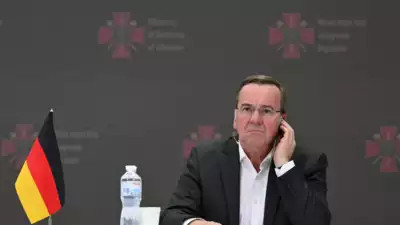
The growing imperative for strengthened defenses
Europe finds itself at a critical juncture. It is currently facing the need to fortify its defense capabilities amidst evolving global dynamics. German Defense Minister Boris Pistorius, echoing concerns shared by many European leaders. He recently emphasized the urgency of bolstering Europe’s defense infrastructure. This imperative stems from a predicted shift in the United States’ security priorities. This shift could potentially reduce its focus on Europe in favor of the Indo-Pacific region.
U.S. pivot to Indo-Pacific: Implications for european security
The anticipated shift in the US’s attention toward the Indo-Pacific region brings forth the realization that Europe must assume greater responsibility for its security. Pistorius highlights this impending change, suggesting that regardless of the next US administration, there will likely be a decrease in American involvement in Europe. Consequently, Europe faces the challenge of filling the security void and ensuring that its defense capabilities remain robust.
Threats from Russia and the call for strengthened defenses
Russia’s heightened arms production raises significant concerns for Europe’s security landscape. This increase in arms production has been used primarily to sustain its incursion in Ukraine. Pistorius underscores the potential threats posed by Russia to the Baltic states, Georgia, and Moldova. The need for Europe to enhance its armed forces, overhaul its industry, and prepare its society within a relatively short timeframe of 5-8 years has been heightened by these emerging security risks.
Proposal for EU defense bonds: A financial path forward
EU’s defensive evolution: Addressing financing and support
Ursula von der Leyen, the head of the European Commission, advocates for increased support for the defense sector from the European Investment Bank (EIB). Despite concerns among investors, von der Leyen stresses the importance of recognizing the defense industry’s contribution to the Union’s security. Integrating financial support for weaponry, ammunition, and explosives into the EIB’s scope necessitates consensus among the EU’s 27 member states. It remains unclear if von der Leyen could acquire that type of support.
Looking ahead: Navigating security realities
As Russia continues its reinforcement in Ukraine, the security landscape remains complex and challenging. European leaders assert that this evolving situation underscores the need for greater support rather than a reason to withhold assistance. The discussions around fortifying Europe’s defense infrastructure and financing mechanisms will likely persist, shaping the region’s security dynamics in the coming years.
